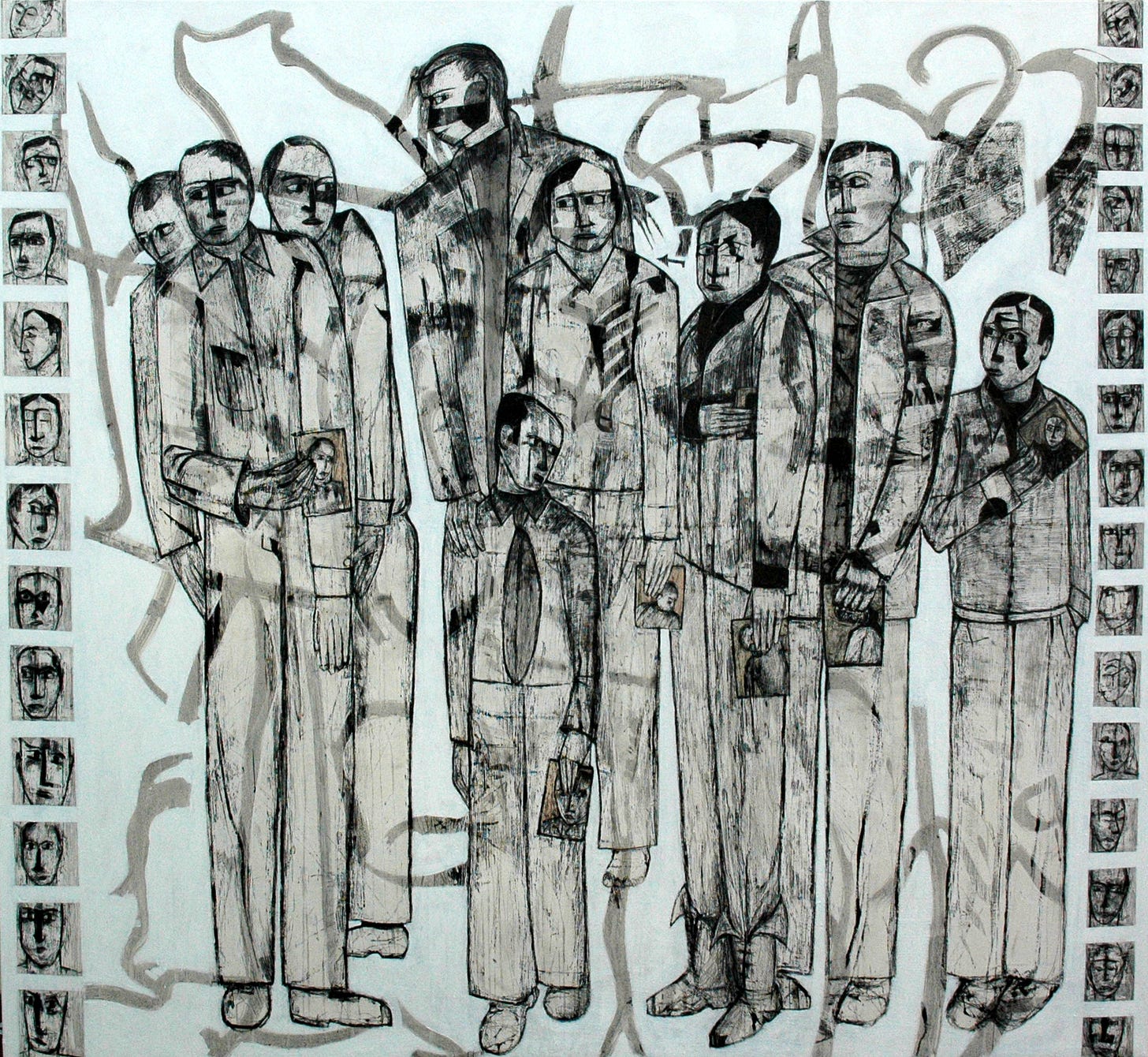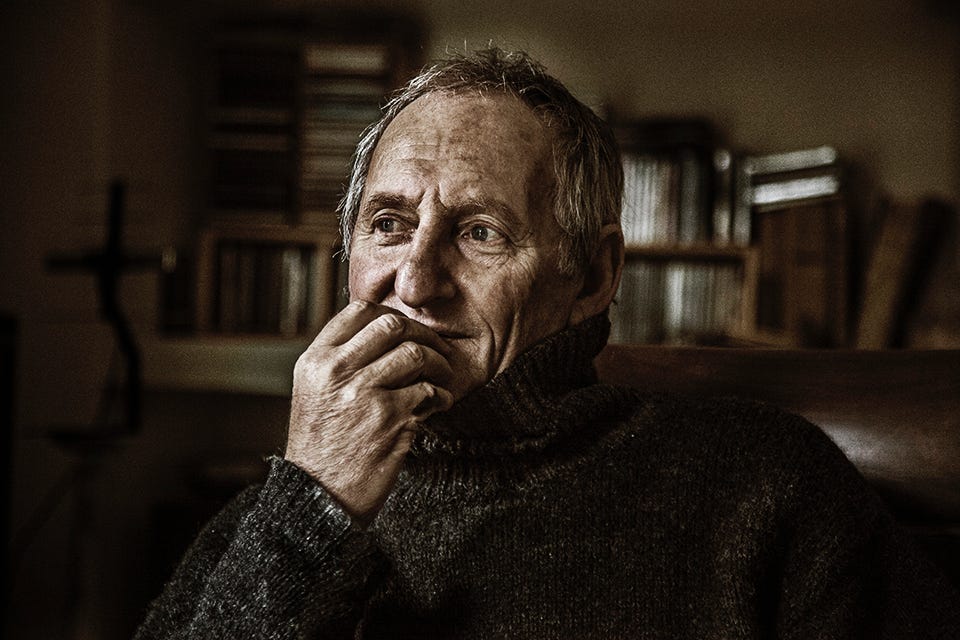AN IRONIC STORY
In an interview* with the exquisite sitar player
and fine artist Ricky Romain
he told me this story.
One day many years ago,
he was sitting in his small countryside bed-sit studio
feeling uncertain and disheartened
about the reasons for him to paint,
about being an artist
and how his work could become meaningful for others.
Eventually he went for a walk to clear his head.
Whilst making his way through a local pasture
he looked up from the grasses passing under his boots
to see a young couple strolling towards him.
Eventually they were close enough
to wish the other a ‘good day’.
How so ever a discussion began slipped Ricky’s memory
but he recalls that he asked them what they did.
We’re aid workers” they said quietly -
no hubris, no pride, no braggadocio,
just an understated few words.
“And you, what do you do?”
Ricky told them he was a painter interested in issues of human rights.
The couple, excited at meeting an artist,
blurted how much they wished they could also be artists.
Ricky was taken aback
and told them that often he wished to be an aid worker.
They all laughed at the absurdity and irony perhaps of life.

THE GREAT LOSS
When a society doesn’t recognise the need for the arts
there is a genuine problem.
When a society doesn’t recognise the need for the arts
there is an existential illness in that society.
The current moral, political, economic and cultural quagmire of our world
is from the 45 years of neoliberalism,
packaged and spread like a poisonous fertiliser
by CEO’s, rich business men and women
and by the intellectual hirelings, purchased politicians
of the right in the US, the UK and now throughout the world.
TWO REALITIES
When one comes to recognise
that we live in at least two types of realities:
the external forces of the social and natural world
and our own inner worlds of conscious and unconscious being,
we may become aware that all of the surrounding influences -
the news and popular culture,
the political and religious leaders froth
and our education systems
have oh so cleverly implanted in us dedication to consumption,
to fame,
to meaningless problems,
to un-investigated assumptions and beliefs
and to become docile, accepting, obedient and incurious.
When artists of any form recognise this,
they then must take a step inside
to understand not only who they are and what motivates them
but perhaps at the junction between the inner and other realities
they may also ask what and whose voice they have,
and/or whom do they represent
and what their moral, political, personal responsibilities
may be, given their skills and talents.
From my story of Ricky above,
in the discussion/interview
he later referred to his reading the Jewish philosopher Martin Buber
and his investigations into one’s relationship (I) to the other (thou).
Buber posits in his theoretical investigation
how humans find meaning through relationships,
and in particular to a God.
I naturally back away,
but none the less the secular part of Buber is not inconsistent
with what I have said above about the duality of our experiential existence.
The reason this is central for me as a film-maker/photographer
is that it points towards recognising
that the most important and telling moments I can capture
are those at the meeting place between people's inner compulsions
and the hard realities of the external world.
Clearly that is where there is powerful drama.







